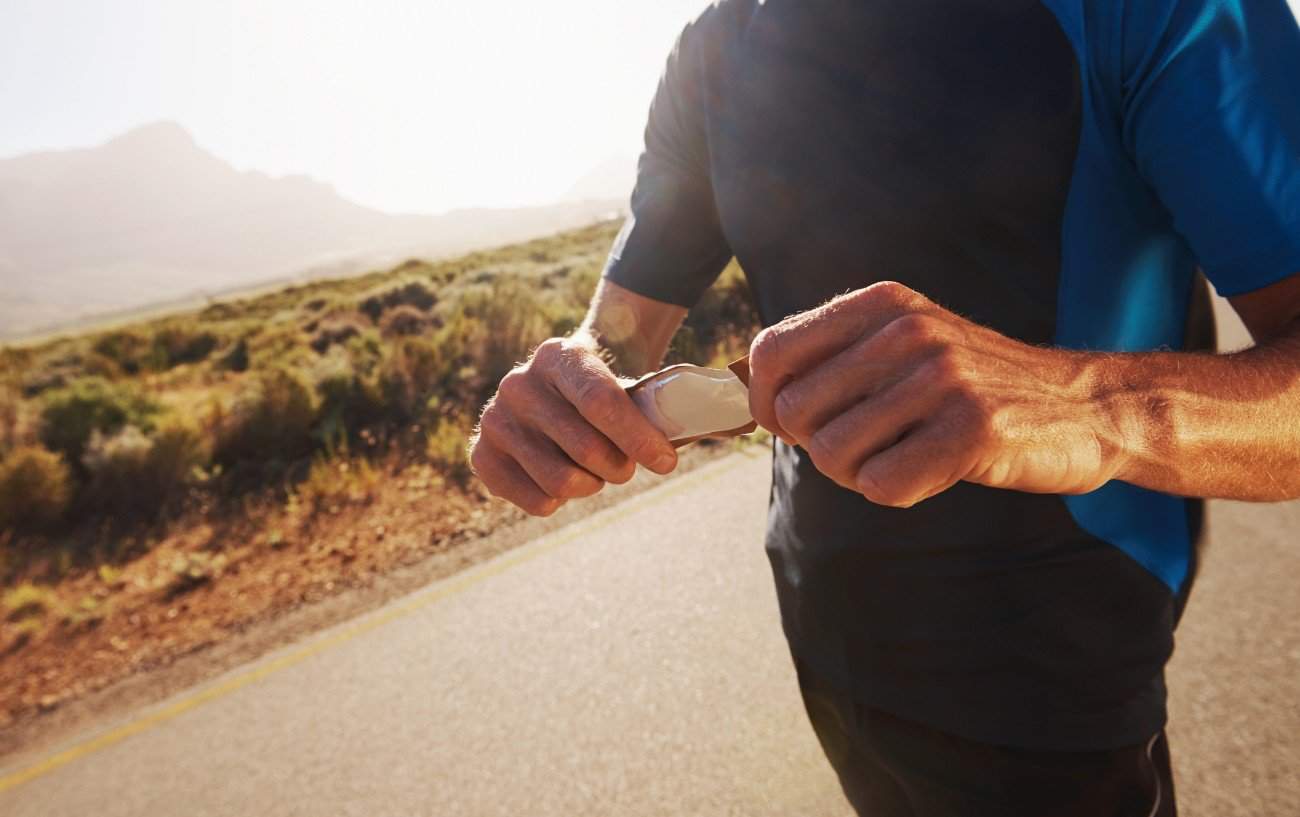

Featured
How Much Caffeine Is In Ryse Pre-Workout
Modified: January 2, 2024
Discover the amount of caffeine in Ryse Pre-Workout, a featured supplement designed to boost your energy levels. Explore the benefits of this product and optimize your workouts.
Introduction
Welcome to our comprehensive guide on Ryse Pre-Workout and its caffeine content. If you’re someone who is into fitness and workouts, you’ve likely heard about the importance of pre-workout supplements. These supplements offer a range of benefits, from boosting energy levels to improving focus and endurance during exercise.
One ingredient commonly found in pre-workout supplements is caffeine. Caffeine is a stimulant that has been used for centuries to increase alertness and reduce fatigue. It is found naturally in various food and beverages, including coffee, tea, and chocolate.
Ryse Pre-Workout is a popular supplement that aims to enhance your workout performance and help you achieve your fitness goals. But just how much caffeine does Ryse Pre-Workout contain? And what are the potential benefits and risks of consuming caffeine before your workout? In this article, we will explore all this and more.
Whether you’re a seasoned athlete or just starting your fitness journey, understanding the caffeine content in Ryse Pre-Workout is crucial for making informed decisions about your pre-workout routine. So, let’s dive in and discover everything you need to know about caffeine in Ryse Pre-Workout.
Ryse Pre-Workout: An Overview
Ryse Pre-Workout is a popular supplement in the fitness industry that is designed to enhance performance during workouts. It is formulated with a combination of ingredients aimed at improving energy, focus, and endurance to maximize your exercise sessions.
One of the key elements of Ryse Pre-Workout is caffeine, which is known for its stimulating effects on the central nervous system. Caffeine helps combat fatigue and increases alertness, allowing you to push harder and longer during your workouts. By increasing focus and energy levels, Ryse Pre-Workout can help you maximize your training sessions and ultimately achieve better results.
Aside from caffeine, Ryse Pre-Workout contains other ingredients such as beta-alanine, citrulline malate, and taurine. These ingredients work synergistically to enhance muscle endurance, promote blood flow, and reduce muscle fatigue, allowing you to train at a higher intensity for a longer period of time.
Ryse Pre-Workout comes in various flavors, catering to different tastes. Whether you prefer a fruity punch or a refreshing blast, Ryse offers a range of options to suit your preferences. The supplement is designed to be mixed with water and consumed around 30 minutes before your workout for optimal performance.
It’s important to note that while Ryse Pre-Workout can provide a significant boost to your workout routine, it is not a magic solution. It should be used in conjunction with a well-rounded fitness regimen and a balanced diet to achieve the best results. Additionally, it’s always a good idea to consult with a healthcare professional before starting any new supplement to ensure it aligns with your individual health needs.
In the following sections, we will specifically focus on the caffeine content in Ryse Pre-Workout and discuss its significance and potential effects. Understanding the amount of caffeine present in the supplement will allow you to make an informed decision about incorporating it into your fitness routine.
Understanding Caffeine
Caffeine is a natural stimulant that belongs to a class of compounds called methylxanthines. It is found in various plants, including coffee beans, tea leaves, cocoa beans, and kola nuts. When consumed, caffeine stimulates the central nervous system, leading to increased alertness and reduced fatigue.
Upon ingestion, caffeine is rapidly absorbed into the bloodstream and reaches peak levels in the body within 30 to 60 minutes. Its effects can last for several hours, but the duration varies depending on factors such as metabolism, dosage, and individual sensitivity.
One of the primary mechanisms of action of caffeine is its ability to block the effects of adenosine, a neurotransmitter that promotes sleep and relaxation. By blocking adenosine receptors in the brain, caffeine promotes wakefulness and keeps us mentally alert. Additionally, caffeine also stimulates the release of other neurotransmitters such as dopamine and norepinephrine, which contribute to increased focus and improved mood.
It’s worth noting that while caffeine can enhance alertness and focus, excessive consumption can lead to jitters, anxiety, and disrupted sleep patterns. Therefore, it’s important to consume caffeine in moderation and be mindful of your individual tolerance levels.
The amount of caffeine found in different sources can vary significantly. For instance, a typical cup of coffee may contain anywhere from 95 to 200 milligrams of caffeine, depending on the strength and size of the serving. Tea, on the other hand, usually contains lower amounts of caffeine, with black tea having around 30 to 48 milligrams per cup.
When it comes to pre-workout supplements, caffeine is often included to provide an energy boost and improve workout performance. However, it’s crucial to be aware of the caffeine content in these supplements to avoid consuming excessive amounts. The next section will focus specifically on the caffeine content in Ryse Pre-Workout and its implications for your fitness routine.
Why is Caffeine Used in Pre-Workout Supplements?
Caffeine is a popular ingredient in pre-workout supplements due to its stimulating effects on the central nervous system. It offers several benefits that can enhance workout performance and help individuals achieve their fitness goals.
Firstly, caffeine is known to boost energy levels and combat fatigue. It stimulates the release of adrenaline, a hormone that prepares the body for physical exertion. By increasing energy levels, caffeine can help you push through challenging workouts and train at a higher intensity.
Additionally, caffeine has been found to improve focus and mental alertness. It enhances cognitive function and concentration, allowing you to stay sharp and focused during your workouts. This can be especially beneficial for individuals who struggle with staying motivated or maintaining mental clarity during exercise.
Moreover, caffeine has been shown to enhance endurance and reduce perceived exertion. It can improve muscular strength and power output, enabling you to perform more repetitions or lift heavier weights. By decreasing the perceived effort of exercise, caffeine can make your workouts feel more manageable and enjoyable.
Another reason caffeine is used in pre-workout supplements is its potential to increase metabolism and enhance fat burning. Caffeine has been shown to stimulate the process of lipolysis, which involves the breakdown of fat stores to be used as fuel. This can promote greater fat utilization during exercise and potentially contribute to weight loss or improved body composition.
Furthermore, caffeine has been reported to improve reaction time and speed. It can enhance neural communication and motor coordination, which can be advantageous for activities that require quick reflexes or agility, such as sports or high-intensity interval training.
Overall, the inclusion of caffeine in pre-workout supplements aims to provide a range of benefits to individuals looking to optimize their exercise performance. However, it’s important to note that the response to caffeine can vary among individuals. Some may experience greater enhancements in performance, while others may be more sensitive to its effects. It’s essential to understand your own tolerance and response to caffeine and adjust your intake accordingly.
Now that we understand why caffeine is commonly used in pre-workout supplements, let’s explore exactly how much caffeine you can expect to find in Ryse Pre-Workout.
How Much Caffeine Does Ryse Pre-Workout Contain?
The caffeine content in Ryse Pre-Workout can vary depending on the specific product variant. On average, a serving of Ryse Pre-Workout contains approximately 200 to 300 milligrams of caffeine. This amount is considered to be within the range of a moderate to high caffeine dosage.
It’s important to note that the recommended daily caffeine intake for most adults is around 400 milligrams. Exceeding this limit may lead to symptoms such as restlessness, increased heart rate, and insomnia. It’s essential to be mindful of your overall caffeine consumption from various sources, including beverages and other supplements, to avoid exceeding the recommended limit.
The caffeine content in Ryse Pre-Workout is included strategically to provide an energy boost and enhance exercise performance. When consumed before a workout, the caffeine in Ryse Pre-Workout can help increase alertness, improve focus, and combat fatigue, allowing you to train at a higher intensity for a longer duration.
However, it’s crucial to understand your own sensitivity to caffeine and adjust your intake accordingly. Some individuals may be more sensitive to the effects of caffeine and may experience jitters, anxiety, or sleep disturbances with even lower doses. It’s recommended to start with a lower dose of Ryse Pre-Workout or consult with a healthcare professional if you have concerns about caffeine sensitivity or any pre-existing health conditions.
Additionally, it’s important to consider other sources of caffeine in your diet and lifestyle when consuming Ryse Pre-Workout. If you are already consuming significant amounts of caffeine from coffee, tea, or energy drinks, it may be necessary to reduce or eliminate those sources to avoid exceeding your daily caffeine limit.
To ensure safe and effective use of Ryse Pre-Workout, it’s recommended to carefully read and follow the instructions and guidelines provided by the manufacturer. Starting with a smaller dose, monitoring your body’s response, and gradually increasing as tolerated can help mitigate potential side effects and ensure optimal results.
Now that we have a clear understanding of the caffeine content in Ryse Pre-Workout, let’s explore the factors that can affect the caffeine levels in this supplement.
Factors Affecting Caffeine Content in Ryse Pre-Workout
The actual caffeine content in Ryse Pre-Workout can be influenced by several factors, and it’s important to be aware of these variables when considering the caffeine dosage in the supplement.
1. Serving Size: The recommended serving size of Ryse Pre-Workout is typically one scoop. However, it’s essential to check the label and follow the specific instructions provided by the manufacturer. Different serving sizes may contain varying amounts of caffeine.
2. Product Variant: Ryse offers a range of Pre-Workout variants, each with different formulations and caffeine content. The caffeine dosage may vary depending on the specific product variant you choose. Be sure to carefully read the product label to determine the caffeine content in the specific variant you have.
3. Production Batch: Caffeine levels can also vary slightly from one production batch to another. Quality control measures are typically in place to ensure consistency, but slight variations can occur.
4. Personal Tolerance: Each individual has a unique sensitivity and tolerance to caffeine. Factors such as body weight, metabolism, and regular caffeine consumption can affect how your body reacts to the caffeine in Ryse Pre-Workout. It’s important to be aware of your own caffeine tolerance and adjust your intake accordingly.
5. Preparation Method: Follow the recommended mixing instructions provided by the manufacturer for Ryse Pre-Workout. The caffeine content may not be evenly distributed if the supplement is not mixed properly, potentially impacting the dosage you receive in each serving.
It’s crucial to consider these factors when assessing the caffeine content in Ryse Pre-Workout. Understanding the potential variations in caffeine dosage can help you make informed decisions about portion sizes and ensure that you are obtaining the desired energy and performance benefits from the supplement.
Next, we will delve into the potential benefits and risks associated with caffeine consumption in pre-workout supplements like Ryse Pre-Workout.
Potential Benefits and Risks of Caffeine in Pre-Workout Supplements
Caffeine, as a key component in pre-workout supplements like Ryse Pre-Workout, offers several potential benefits that can enhance exercise performance. However, it’s important to be aware of the potential risks and drawbacks associated with its consumption as well.
Benefits:
- Increased Energy: The primary benefit of caffeine in pre-workout supplements is its ability to boost energy levels. Caffeine stimulates the central nervous system, providing a surge of energy that can help combat fatigue and improve your overall workout performance.
- Improved Focus and Mental Alertness: Caffeine can enhance cognitive function, promoting better focus and mental alertness during your workouts. This heightened level of concentration can help you stay in tune with your body and maximize each and every exercise.
- Enhanced Endurance: Consuming caffeine before a workout has been shown to improve endurance. It can delay the onset of fatigue, allowing you to push through intense training sessions and achieve better results.
- Increased Fat Utilization: Caffeine has the potential to enhance fat burning and increase metabolic rate. It stimulates the release of fatty acids from fat stores, making them more available for energy utilization during exercise.
Risks and Drawbacks:
- Potential Side Effects: Excessive caffeine consumption can lead to side effects such as restlessness, increased heart rate, anxiety, and disrupted sleep patterns. It’s important to be mindful of your caffeine tolerance and avoid exceeding the recommended daily intake.
- Dependency and Withdrawal Symptoms: Regular consumption of caffeine can lead to dependency, and sudden cessation can result in withdrawal symptoms such as headaches, irritability, and fatigue. Gradually reducing caffeine intake can help manage these effects.
- Disrupted Sleep: Caffeine is a stimulant that can interfere with sleep quality and duration. Consuming pre-workout supplements containing caffeine too close to bedtime may result in difficulty falling asleep or experiencing restless sleep.
- Individual Sensitivity: Different individuals have different levels of sensitivity to caffeine. Some people may be more prone to adverse effects, such as jitteriness or gastrointestinal discomfort, even with moderate caffeine consumption.
It’s important to weigh the potential benefits and risks of caffeine consumption in pre-workout supplements like Ryse Pre-Workout. Everyone’s individual response to caffeine may vary, and it’s essential to listen to your body and adjust your intake accordingly.
Now, let’s explore some practical tips for the safe and effective consumption of Ryse Pre-Workout or any other pre-workout supplement containing caffeine.
Tips for Safe Consumption of Ryse Pre-Workout
When incorporating Ryse Pre-Workout or any other pre-workout supplement containing caffeine into your fitness routine, it’s important to prioritize safety and make informed choices. Here are some tips to help you consume Ryse Pre-Workout safely and effectively:
1. Follow Recommended Dosage: Adhere to the recommended dosage instructions provided by the manufacturer. Avoid exceeding the recommended intake to minimize the risk of adverse effects.
2. Assess Your Caffeine Tolerance: Determine your individual sensitivity to caffeine by starting with a smaller dose. If you are new to caffeine or have a low tolerance, consider beginning with half a scoop of Ryse Pre-Workout and gradually increasing as needed.
3. Mindful Timing: Consume Ryse Pre-Workout at least 30 minutes before your workout to allow the caffeine to kick in. Avoid taking it too close to bedtime to prevent sleep disturbances.
4. Consider Other Sources of Caffeine: Take into account other sources of caffeine in your diet, such as coffee, tea, or energy drinks. Adjust your intake accordingly to prevent exceeding the recommended daily caffeine limit.
5. Stay Hydrated: It’s important to stay hydrated while exercising. Remember to drink water alongside consuming Ryse Pre-Workout to maintain proper hydration levels.
6. Listen to Your Body: Pay attention to how your body reacts to Ryse Pre-Workout. If you experience any adverse effects or discomfort, reduce the dosage or discontinue use. Everyone’s response to caffeine may vary, so it’s essential to listen to your body’s signals.
7. Consult with a Healthcare Professional: If you have any underlying health conditions or concerns about caffeine sensitivity, it’s advisable to consult with a healthcare professional before incorporating Ryse Pre-Workout into your fitness routine.
Remember, pre-workout supplements like Ryse Pre-Workout are intended to enhance your workout performance, but they should be used in conjunction with a balanced diet, regular exercise, and a healthy lifestyle. They are not a substitute for overall fitness and should not be relied upon as a sole means of achieving your fitness goals.
Now that you’re equipped with these tips, you can safely and effectively incorporate Ryse Pre-Workout into your pre-workout routine and optimize your fitness journey.
Conclusion
In conclusion,
Ryse Pre-Workout is a popular supplement in the fitness industry, formulated to enhance performance during workouts. It contains caffeine, a natural stimulant that offers various benefits, including increased energy, improved focus, enhanced endurance, and increased fat utilization.
Understanding the caffeine content in Ryse Pre-Workout is crucial for making informed decisions about incorporating it into your fitness routine. Depending on the specific product variant, a serving of Ryse Pre-Workout typically contains approximately 200 to 300 milligrams of caffeine, which falls within the range of a moderate to high caffeine dosage.
While caffeine can provide significant benefits, it’s important to be mindful of individual tolerance levels and potential risks associated with caffeine consumption. Excessive intake can lead to side effects such as restlessness, increased heart rate, anxiety, and disrupted sleep patterns.
To ensure safe consumption of Ryse Pre-Workout, it’s recommended to follow the recommended dosage, assess your caffeine tolerance, consume it mindfully, consider other sources of caffeine in your diet, stay hydrated, listen to your body, and consult with a healthcare professional if needed.
Ryse Pre-Workout is designed to be a supplement to a well-rounded fitness regimen and a balanced diet. It should not be relied upon as a sole means of achieving your fitness goals. Incorporating healthy lifestyle habits and maintaining overall fitness is key to long-term success.
By understanding the caffeine content in Ryse Pre-Workout and following best practices for safe consumption, you can optimize your workout performance and progress towards your fitness goals more effectively.
Remember, every individual is unique, so it’s important to listen to your body and tailor your pre-workout supplementation to your own needs and preferences.
Now that you’re equipped with knowledge about Ryse Pre-Workout and its caffeine content, you can make informed decisions about incorporating it into your pre-workout routine and take your fitness journey to new heights.









